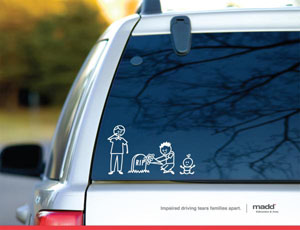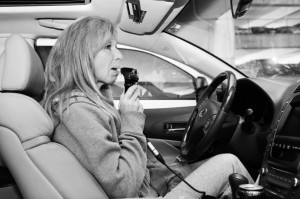The National Transportation Safety Board (NTSB) has recommended that all states update their DUI or DWI laws to require the ignition interlock device for all convicted drunk drivers, even first-time offenders. Currently, only 17 states require the interlock device for first time offenders. The NTSB completed a special investigation report on wrong-way driving collisions, of which more than half involved drivers impaired by alcohol. One of the study’s conclusions states, “New countermeasures to alcohol-impaired driving, as well as renewed emphasis at the federal, state, and local level, are needed.” Also: “The installation of alcohol ignition interlocks on the vehicles of all driving while intoxicated (DWI) offenders would reduce accidents caused by alcohol-impaired drivers.” The NTSB is is an independent federal investigative agency consisting of only about 400 employees and 5 board members. They have an annual budget of nearly $100 million.
The NTSB have pushed for widespread use of ignition interlocks for DUI/DWI offenders for many years. For this recent recommendation, the board cited a new study that found 360 people are killed each year in wrong-way driving crashes, and that 60% of these wrong-way drivers involved alcohol. The report emphasizes that seven of the nine wrong-way driving crashes had drivers with a BAC exceeding 0.15%. Additionally, 9% of those drivers had a previous record of a DWI conviction within the last three years.
The report had specific recommendations to the 33 states that do not currently mandate use of the ignition interlock devices for all DWI offenders, and also the District of Columbia and Puerto Rice. The recommendation specifically states that their governments should “enact laws to require the use of alcohol ignition interlock devices for all individuals convicted of driving while intoxicated (DWI) offenses.
The NTSB strongly endorsed continuing development of a “passive alcohol-detection technology” called the Driver Alcohol Detection System for Safety (DADSS). The DADSS would prevent drivers with alcohol in their systems from starting their vehicles if the system detects alcohol with its breath- and touch-based sensors. The NTSB has recommended that the National Highway Traffic Safety Administration and the Automotive Coalition for Traffic Safety would together to accelerate the widespread implementation of these technologies.
An opponent to these measures is Sarah Longwell, The American Beverage Institute’s managing director. She says the interlock devices need to be reserved for “hardcore” offenders, or those whose DUI or DWI involved a very high BAC (above .15%) or repeat offenders. She argues that first-offenders with blood alcohol levels less than double the legal limit need to be treated separately than those with high BACs or who have previous offenses. Longwell said, “You don’t punish somebody going five miles over the speed limit the same way you do somebody going 50 miles over the speed limit.”
If the DADSS systems continue to develop their technologies and become widespread, Longwell surmises that it would “eliminate people’s ability to have a glass of wine with dinner or to have a beer at a ballgame and then drive home.”
According to the Governors Highway Safety Association, states with DUI and DWI laws that require interlock devices for first-time offenders include: Alaska, Arizona, Arkansas, Colorado, Connecticut, Hawaii, Illinois, Kansas, Louisiana, Missouri, Nebraska, New Mexico, New York, Oregon, Utah, Virginia, and Washington. Missouri’s new laws will not be fully enacted until 2013.

 A
A 
 Since 2010, all drivers convicted of DWI in New York must use an ignition interlock device on their vehicle for a minimum of six months. The device will not allow the car to start if alcohol, which can be as low as .025%, is detected in the driver’s breath. This zero tolerance policy started as a provision under New York’s “Leandra’s Law”, also known as the Child Passenger Protection Act.
Since 2010, all drivers convicted of DWI in New York must use an ignition interlock device on their vehicle for a minimum of six months. The device will not allow the car to start if alcohol, which can be as low as .025%, is detected in the driver’s breath. This zero tolerance policy started as a provision under New York’s “Leandra’s Law”, also known as the Child Passenger Protection Act.